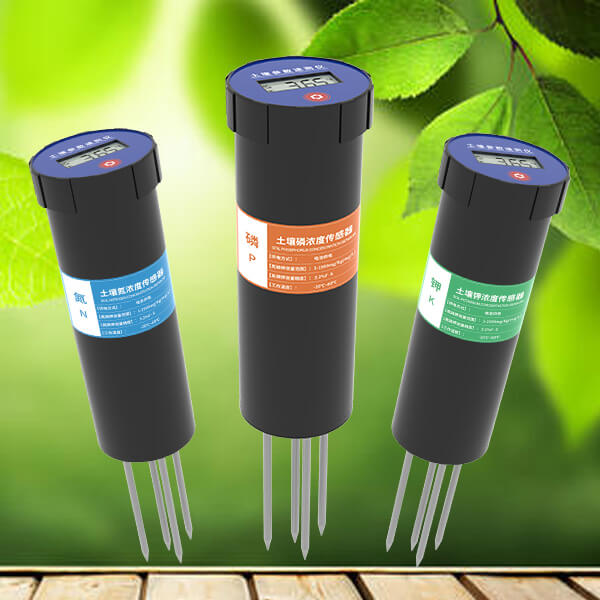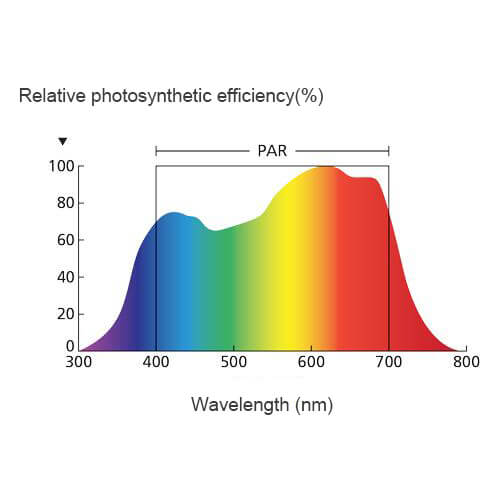Water is an important part of plant growth, and plants cannot survive without water. Nutrients are the basis for the vigorous growth of plants. The lack of nutrients in plants will lead to malnutrition. A reasonable and accurate grasp of soil moisture and fertility is the most important step in gardening activities. A proper amount of irrigation can ensure that the roots of the plant can effectively absorb water and grow vigorously. Arid growth environment can cause poor growth of plants or death due to lack of water, while excessive waterlogging can easily drown plants. Making mistakes in such seemingly simple actions often kills plants easily. Many gardening enthusiasts are helpless.
For gardening beginners and gardening masters, having a soil meter can help you accurately understand the needs of plant babies. It helps you to know when plants are thirsty and when plants need nourishment. Simply insert the probe into the soil, and you can quickly read the current soil moisture, temperature, conductivity, ph, or nitrogen, phosphorus, and potassium values on the display. What a powerful assistant this is.
What is a soil meter?
A soil meter is a device used to measure various elements in the soil which affect plant growth, such as temperature, moisture, conductivity, pH, nitrogen, phosphorus, potassium, and other elements. This article mainly introduces nine commonly used soil tester.
Let me give you a detailed introduction to the nine most commonly used soil meters:
Soil moisture meter
What is a soil moisture meter?
A soil moisture meter is a device that quickly measures the relative moisture content of the current soil. The deep soil moisture is measured by a stainless steel probe, and the value is displayed in real-time on the top display.
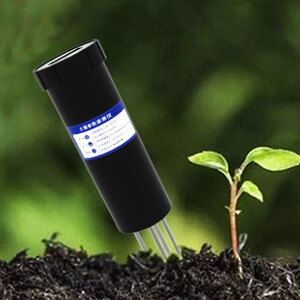
Why you need a soil moisture meter?
Easy to use
This soil moisture meter use is very simple. You just need to insert the probe into the soil you want to measure and wait for two seconds to see the value directly. After three seconds of standing, the soil moisture meter can automatically shut down. Even children in elementary school can use it. The operation is very simple and can make children excited about not-so-interesting gardening tasks. You can use it to conduct scientific gardening education for your children.
Cheap price
The soil moisture meter is a simple soil tester that measures a single element, so the price is also the lowest. One only costs $45 ~ $57, but the service life is as high as 3-5 years. Calculated in this way, you only need to spend $1.58 per month to reasonably arrange the watering work in gardening.
Fast to read
After the soil moisture meter is turned on, it can display the moisture value within 2 seconds after the probe is inserted into the soil. The response is very fast, and you do not need to wait patiently. Automatic calibration after each use, even if you use it continuously, you don’t need to worry about inaccurate readings. How can such a fast and convenient soil moisture meter not be your green helper?
Easy to carry
This soil moisture meter is only 17cm in length and very light in weight. The built-in battery can be used for a long time for 3-5 years, without frequent charging or manual battery replacement. Once used, there is no need to manually shut down, just let it stand for 3s, and the soil moisture meter will automatically shut down. Therefore, even in remote areas, there is no problem.
Environment friendly
This soil moisture meter is made of environmentally friendly materials, and there is no noise during use. The brightness of the display is mild and the values are clear, so even if you have poor eyesight, you can easily see the values. The 316L stainless steel probe at the bottom is of moderate length, which can effectively avoid damage to plant rhizomes caused by improper operation.
Soil conductivity meter
In soil analysis, the salt content is an important comprehensive index, and measuring the electrical conductivity in the soil can directly reflect the mixed salt content. The soil conductivity meter is a device that specifically measures this element. If the total soil salt content increases, soil acidification, and secondary salinization are likely to occur, which is very unfavorable for plant growth. It is very necessary to monitor the electrical conductivity in the soil to be able to grasp its pollution status.
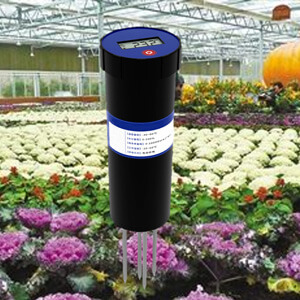
The size of the soil conductivity meter is the same as that of the soil moisture meter. It can be placed directly in the gardener’s toolbox. This is a cheap and efficient option for gardeners who want to measure a single element of conductivity. The read is quick, and it is not affected by other moisture or temperature factors, and there is no need to worry about the value recording error caused by busyness.
Soil temperature and humidity meter
Soil temperature mainly refers to the temperature in the shallow layer of the ground directly related to plant growth. The quality of soil temperature directly affects the growth of plants. Various biochemical processes in the soil, such as biochemical and non-living caused by microbial activities Chemical processes are all affected by soil temperature. So garden enthusiasts will often measure soil temperature.
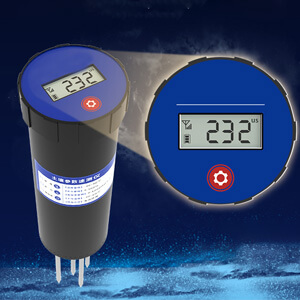
Soil humidity is also called soil moisture content, which represents the physical quantity of soil dryness and wetness. Soil moisture determines the water supply status of plants. Soil moisture is too low, resulting in soil drought, photosynthesis cannot proceed normally, reducing the yield and quality of plants, and severe water shortage leading to plant withering and death. Too high soil moisture will deteriorate soil aeration, affect the activities of soil microorganisms, hinder the respiration and growth of plant roots and other life activities, thereby affecting the normal growth of the above-ground parts of plants.
The soil temperature and humidity meter is a soil tester that can measure soil temperature and humidity at the same time. After powering on, insert the probe into the soil to be measured, and after two seconds, the soil temperature value will be displayed first, and then the soil moisture data will be displayed. Carousel display of temperature and humidity values. This soil meter of the same size can measure two elements at the same time, saving the space of gardeners’ tools box. It also saves costs.
Soil moisture and conductivity meter
he soil moisture and conductivity meter can measure soil moisture and soil conductivity at the same time.
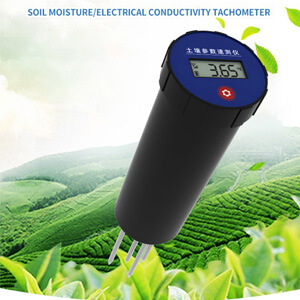
Soil temperature humidity and conductivity meter
This 3 in 1 soil meter can simultaneously measure soil temperature, soil moisture, and soil conductivity. It is an important tool for studying the occurrence, evolution, and improvement of saline soil, water, and salt dynamics and reflecting the true water content of various soils. This is an upgraded type of several soil testers introduced earlier. It integrates the functions of the previous single element soil meter. The three data of temperature, humidity, and conductivity are displayed in a carousel manner to present the measured values to the user.
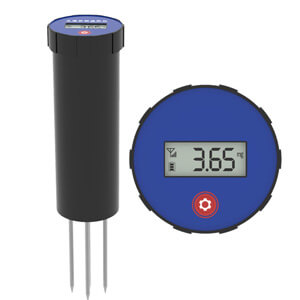
This three-in-one soil meter is currently the most popular soil tester on the market. It has complete measurement elements. The price is $75~$85, cheap and durable, and it is very popular among gardening enthusiasts. Once you use it, you will love it.
Soil ph meter
Why Is Soil pH So Important?
Soil pH is the general term for soil acidity and alkalinity. Usually used to reflect the strength of the soil acid-base reaction. Soils that are too acid and too alkaline are important factors that limit plant growth and quality. Most plants are not tolerant to the soil that is too acid or too alkaline. A pH of 6.5 is usually the ideal soil pH. However, this may be different because different types of plants have different requirements for soil pH. Therefore, it is very important to understand the pH of the soil.
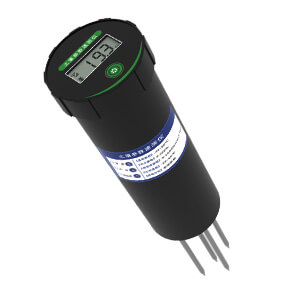
Soil pH meter is a useful tool for people who want to improve their garden and grow any type of flowers or plants. It is very easy to use. All you need to do is insert the probe into the soil. In order to get the most accurate reading, please try to insert the probe as close as possible to the root of the plant. After turning on, wait for two seconds to easily read the pH value of the soil on the display. This product is accurately calibrated, can be used for pH testing, and is precisely processed to quickly display reliable results.
Soil Nitrogen meter
Why measure soil nitrogen?
Nitrogen is an essential nutrient for plant growth, and it is an integral part of every living cell. Plants need a lot of nitrogen. The effect of nitrogen on plant growth and development is very obvious. When nitrogen is sufficient, plants can synthesize more protein to promote cell division and growth. Therefore, the leaf area of plants grows faster, and more leaf areas can be used for photosynthesis. The amount of nitrogen is closely related to the chlorophyll content in the leaves. Therefore, we can roughly judge the supply of nitrogen from the size of the leaf area and the depth of the leaf color.
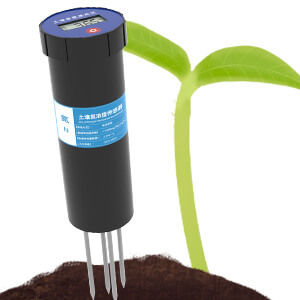
How to measure soil nitrogen?
The Soil Nitrogen meter is a device specially developed by us to quickly measure the nitrogen content in the soil. When the user puts the probe into the soil, the device can quickly display the current soil nitrogen value. Provide data reference for gardeners to judge soil fertility and provide nutrients for plants in time.
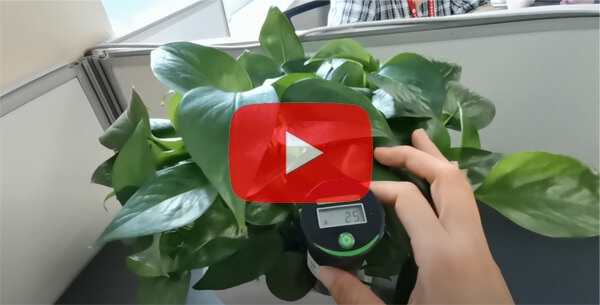
Soil Phosphorus meter
Why measure soil phosphorus?
Phosphorus is one of the macronutrient elements necessary for plant growth. It is not only a component of many important organic compounds in plants but also participates in various metabolisms in plants in many ways.
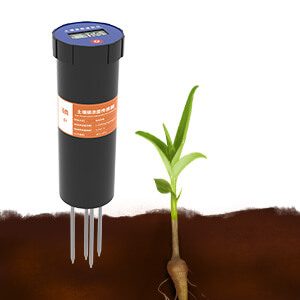
How to measure soil phosphorus?
The appearance of our soil phosphorus tachometer is the same as that of the soil nitrogen meter, but the measurement elements are different.
Soil Potassium meter
Why measure soil potassium?
Promoting the activation of enzymes is one of the most important functions of potassium in plant growth. It has been found that potassium is an activator of more than 60 enzymes. therefore. Potassium is closely related to many metabolic processes in plants, such as photosynthesis, respiration, and the synthesis of carbohydrates, fats, and proteins. Plants lack potassium fertilizer, they will suffer from “Rickets”, they tend to fall down, and they are often troubled by bacteria and pests. Potassium is often called the “quality element”. Potassium can improve crop resistance, such as drought resistance, cold resistance, lodging resistance, and resistance to pests and diseases.
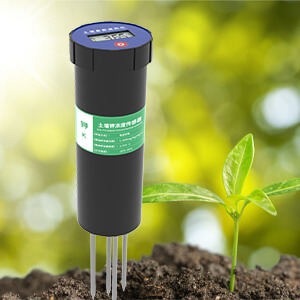
How to measure potassium?
Similar to the soil nitrogen meter and soil phosphorus meter, we have also developed a soil potassium meter that is similar in appearance to the first two types of soil tester. These three soil meters are collectively referred to as soil npk meters. They are often used by gardening enthusiasts to control soil fertility.
How to choose a moisture meter?
When looking for one of the best hygrometers, keep the following in mind:
Clear display
It is clear and simple to view and understand the results without scientific help, which will help you quickly determine the moisture content, thus saving time and energy.
Accurate measurement
You don’t want to kill your beloved flower by misreading. The best hygrometer should provide reliable measurement results. It is best to display the exact value directly.
Available functions
Do you only need to check the water level? Or, will you still benefit from nutrient and pH readings? As comprehensive soil data as possible, you can ensure that you have a clear decision.
Plant type
Research the types of plants and soil in your garden, because in some cases you may have different measurement requirements. Cacti and aloes are like dry soil, while rhododendrons and begonias like water.

